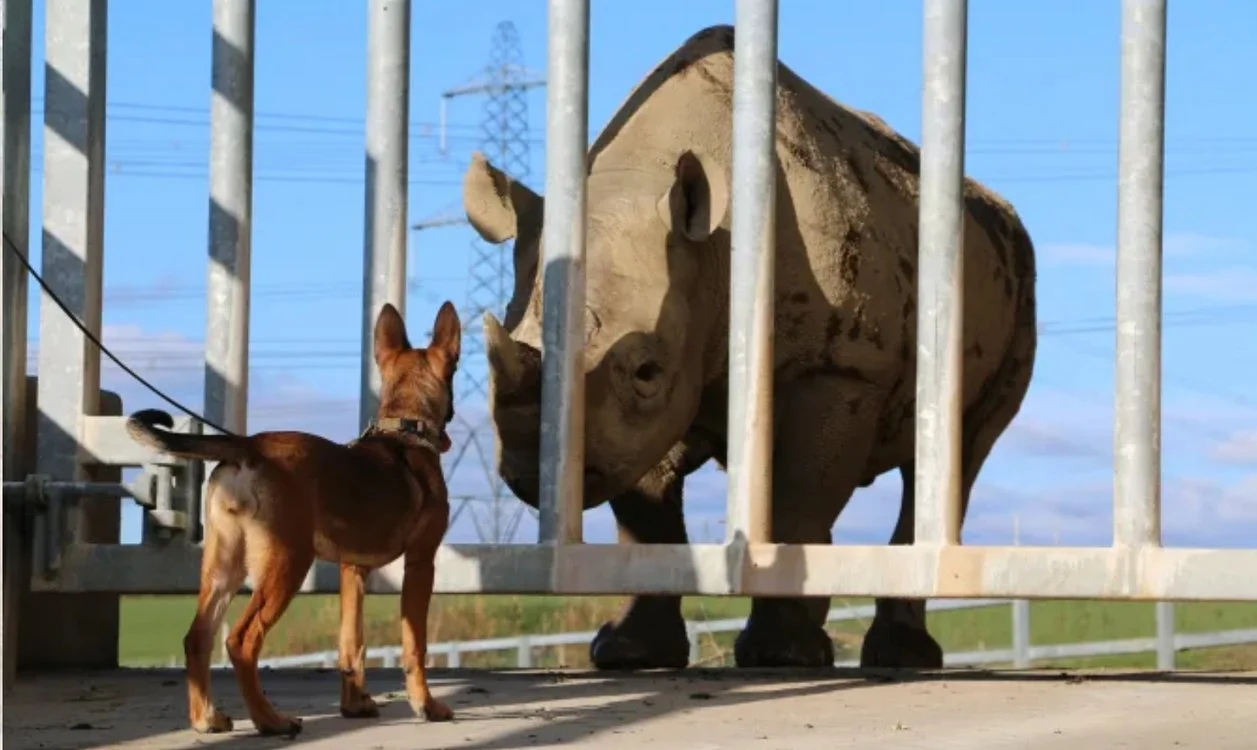In the misty green hills of Wales, far from the savannas of Africa, a small team of extraordinary dogs is being raised for a mission that will take them halfway across the world — to protect endangered animals from extinction.
Trained by professional handlers Darren Priddle and Jacqui Law, these dogs can follow scent trails for miles, track poachers in total darkness, and even locate animals injured by snares. Their work has already helped slow — and in some places reverse — the decline of Africa’s rhino populations.
From Welsh Farms to African Frontlines
After years of training police and military dogs, Priddle and Law were shaken by images of poached rhinos they saw online. “We can deploy dogs in the UK to track people … to look for drugs, firearms, and explosives,” Priddle told CNN. “So why could we not develop the same skills for conservation?”
That question became the foundation for their nonprofit, Dogs4Wildlife, based in Wales. For over a decade, they’ve bred and trained Belgian Malinois, Dutch shepherds, spaniels, and retrievers specifically for anti-poaching work across Africa. From just one or two litters a year, the dogs begin their specialized training as early as three days old, when the trainers introduce a variety of scents and textures to stimulate their senses.
As they grow, the young dogs undergo rigorous tracking and scent-recognition exercises similar to police K9s, with added exposure to wildlife. Sessions at local zoos desensitize them to the smells of elephants, giraffes, antelope, and rhinos — preparing them for life in the bush.
By 16 to 18 months, they’re ready for deployment. So far, Dogs4Wildlife graduates have joined anti-poaching units (APUs) in Tanzania, Mozambique, and Zimbabwe, where their impact has been immediate.
Turning the Tables on Poachers
“When reserves bring a specialist dog onto a wildlife reserve … the word spreads quickly,” Priddle said. “Poachers know they’re more likely to get caught.”
In some smaller reserves, the deterrent effect alone has nearly eliminated poaching altogether. But these dogs don’t just scare poachers — they catch them. One Belgian Malinois once tracked a poacher’s scent for three miles after a warthog kill, leading rangers straight to his doorstep. Another dog saved a trapped rhino calf after veering off a standard patrol route to follow its distress scent.
Their keen senses have also protected human lives. At Zimbabwe’s Imire Conservancy, Dogs4Wildlife-trained canines have repeatedly detected armed poachers approaching in the dark — alerting rangers before ambushes could occur.
A Lifeline Across Continents
Even after deployment, Priddle and Law maintain close contact with the APUs via WhatsApp, offering training advice and receiving updates about the dogs they raised from birth. “It’s emotional,” Law admits. “We’ve watched these dogs grow up — and now they’re out there saving lives.”
Through their dedication, the Welsh trainers have proven that one small kennel in the rolling countryside can make a world of difference — helping protect Africa’s most iconic wildlife, one pawprint at a time.
Would you like me to make a shorter, news-style version of this for web publication (around 300 words), or keep it as this feature-length storytelling format?
